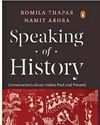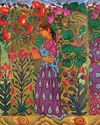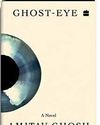Make them LAUGH!
Reader's Digest India
|May 2023
The surprising—and winning—strategy to making persuasive points in any argument

There is no bigger current affairs show on British television than the BBC’s Question Time. For more than 40 years, millions have tuned in week after week to watch the country’s leading politicians and pundits argue and debate the news in front of a live studio audience. In January 2015, I was invited to join the Question Time panel. It was the week after the Charlie Hebdo terror attack, in which two French Muslim brothers had murdered 12 people at the offices of the satirical newspaper in Paris. In the weeks and months running up to the attack, offensive and racist cartoons of the Prophet Muhammad published by Charlie Hebdo had caused outrage and protests across Muslim-majority countries.
I knew the show’s producers were keen to have a Muslim voice on the panel—and, to be honest, I was keen to be that voice. In fact, I was beyond grateful to have access to such a huge media platform from which to try and push back against the usual Islamophobia that is unleashed in the wake of every ISIS- or al-Qaeda–linked terror attack. But I knew it wouldn’t be easy, and I knew I had to do it with a light touch.
That night, the opening question from the audience was about the violence in Paris and the Charlie Hebdo cartoons: “Free speech is good, but where do you draw the line before it becomes harmful and offensive?” And, for the opening response, host David Dimbleby handed the stage over to me.
I began by making clear that I was appalled—by the massacre in Paris, by homicidal maniacs abusing my religion to justify their crimes.
Diese Geschichte stammt aus der May 2023-Ausgabe von Reader's Digest India.
Abonnieren Sie Magzter GOLD, um auf Tausende kuratierter Premium-Geschichten und über 9.000 Zeitschriften und Zeitungen zuzugreifen.
Sie sind bereits Abonnent? Anmelden
WEITERE GESCHICHTEN VON Reader's Digest India

Reader's Digest India
Speaking of History by Romila Thapar, Namit Aroram, Penguin Random House, India
Romila Thapar is one of India's most accomplished historians, her work on ancient India being particularly well-received and a part of university curricula around the world.
1 min
December 2025

Reader's Digest India
ME & MY SHELF
Ranjeet Pratap Singh is the co-founder and CEO of Pratilipi, the largest Indian language digital storytelling platform with over 9,50,000 writers in 12 languages and over 30 million monthly readers. Singh was part of the Forbes 30 Under 30 list in 2018.
3 mins
December 2025

Reader's Digest India
HUMOUR in UNIFORM
While our frigate was taking on supplies at sea from a British ship, I noticed three of their sailors pointing to our destroyer’s squadron crest, which was proudly mounted on the side of our ship.
1 min
December 2025

Reader's Digest India
Obeshwar by A. Ramachandran, Oil on canvas, 2022 78 x 192 inches
One of independent India’s preeminent artists, A. Ramachandran (born in 1935), passed away last year, following a long and distinguished career.
1 min
December 2025

Reader's Digest India
Memes for Mummyji by Santosh Desai, HarperCollins India
Santosh Desai, one of Indian advertising's leading lights for over two decades, has a well-earned reputation for spotting cultural trends in Indian cities, as evidenced by his previous book Mother Pious Lady.
1 min
December 2025

Reader's Digest India
Ghost-Eye by Amitav Ghosh, HarperCollins India
In Amitav Ghosh's first novel since Gun Island (2019), we meet a young Marwari girl named Varsha Singh living in Calcutta in the 1960s with her strictly vegetarian family.
1 min
December 2025

Reader's Digest India
"Good Songs Stay Written ..."
Rock legend Bruce Springsteen on music as a time machine, responsibility in the family, and the situation in the USA
3 mins
December 2025

Reader's Digest India
WHEN COMPUTERS WERE FEMALE
THE PIONEERS OF PROGRAMMING WERE SIX WOMEN
6 mins
December 2025

Reader's Digest India
I Am My Mother's Older Brother
As the onset of dementia reshapes their world, a daughter becomes her mother's carer and keeper while navigating grief, duty, and unwavering love
7 mins
December 2025

Reader's Digest India
Small Changes Big Results
While motivation gets us started, discipline is what keeps us going.
3 mins
December 2025
Translate
Change font size

